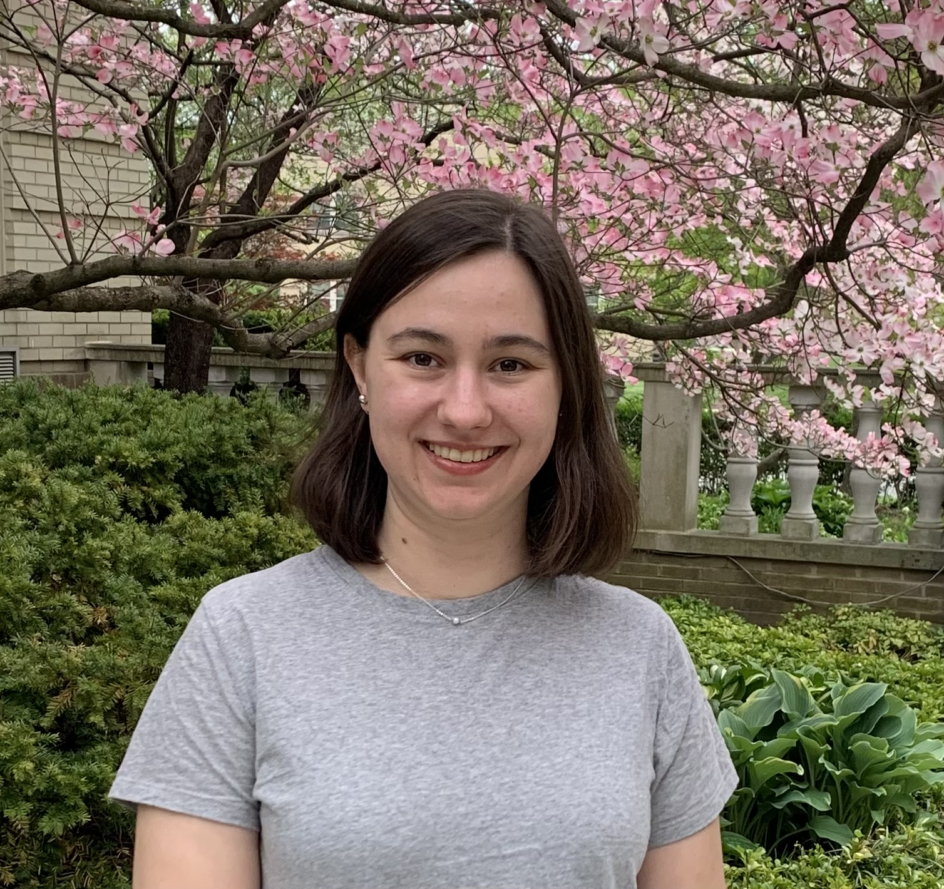The number of places of worship nationwide is decreasing, but faith remains. What role does faith play in the modern world? We asked five Ohioans to share what it means in their daily lives.
Lucy Enge is a member of Wilmington Friends Meeting and a graduate of Wilmington College, where she concentrated in food policy and nonviolence. An enthusiastic eighth-generation Ohioan, she currently works in government and is an aspiring theologian and future farmer. She lives in Columbus, Ohio.
When my parents left the Catholic Church and decided to start attending a Quaker Meeting, my devoutly Catholic grandmother, who would only find religious tolerance years later through the Baptist music ministry at her nursing home, thought we were becoming Amish.
I was five then and was shocked—after only knowing the unmarried priests of our Catholic parish—that our new Quaker pastor had a wife. But, despite a lack of acceptance from their families, my parents’ choice for their faith to reflect the world they saw and wanted was one of the best things that has ever happened to me.
Quakerism, or the Religious Society of Friends, dates back to 17th-century England. What set early Friends apart were their deeply entrenched commitments to equality and simplicity. They were known for their belief in “The Light”—seeing that of God in every person. And, in worship, they practiced waiting in silence for God to speak to them.
Today, Quakerism is not a monolithic faith. Friends range from atheists to evangelicals. Meetings, as Quaker churches are commonly called, can be like those of early Friends practicing unprogrammed (silent) worship or can be programmed like a traditional Christian service with a sermon and hymns interwoven with periods of waiting worship.
Now, 17 years after my family began attending our small, welcoming and theologically-diverse programmed meetings, I cannot imagine my life without my faith.
The silence of waiting worship that used to pain me is now welcome and needed in my life, and I often wish it would last longer. Some of my most treasured memories of being a child in the Meeting are the picnics and potlucks, youth pageants and Sunday school shenanigans that made me feel a part of the community.
My parents always let religion be my choice, and, after learning about world religions in middle school, I almost decided to become a Buddhist. But what made me decide to remain a Quaker, and later officially become a member of my Meeting, were the Quaker Testimonies that centered my life: peace, integrity, community, equality, stewardship and simplicity. And, most importantly, in Quakerism, there was space for faith to be a journey of questioning and challenging.
I ended up deciding to go to the Quaker college in my hometown, thanks to the encouragement of a professor who attended my Meeting. While I considered myself Quaker, I had long been very troubled by the evangelical nationalism so many Christian denominations preached that seemed rooted in hatred and fear. Through my coursework, I was introduced to the writings of progressive theologians. As I read and studied, I witnessed how the Christianity of the early church had been lost in our world of consumerism and co-opted to lay a moral ground far from Jesus’ teachings. I saw a broader loving Christian community of thought that I wanted to be a part of. I realized the importance of both my Quakerism and my Christianity.
Yet, what can living a faithful life as a Quaker look like in our ever-connected and loud world?
I have come to understand that simplicity cannot coexist with inauthenticity, for simplicity means removing all the junk and focusing on what makes us whole and gives thoughtful meaning to our lives. My mom instilled in me that we vote not only at the polls but also with our money. This knowledge has led me to focus on the impact of my purchases and to constantly work towards living a mindful and minimalist life. My current personal challenge, as a lifelong vegetarian, is to be vegan and eat more locally to care for both myself and the planet.
As a Quaker, I am a pacifist who also cares deeply about our veterans. I have focused my energy on politics and building consensus based on shared values. I have lobbied my elected officials on issues including ending gun violence and addressing the climate crisis, and in school, I organized with my fellow students to raise wages for our beloved professors and staff.
My life has been changed by serving nights at a women’s shelter and refreshed by visiting Friends in Costa Rica. For me, faith is not public words of declaration. Rather, it is an inward reflection that is a catalyst for a transformative life of faithful action and witness grounded in community and love.

